Seed tray alternatives – 5 DIY ideas for germinating your seeds
Using repurposed household items to create seed trays is an inexpensive and eco-friendly way to grow your seedlings
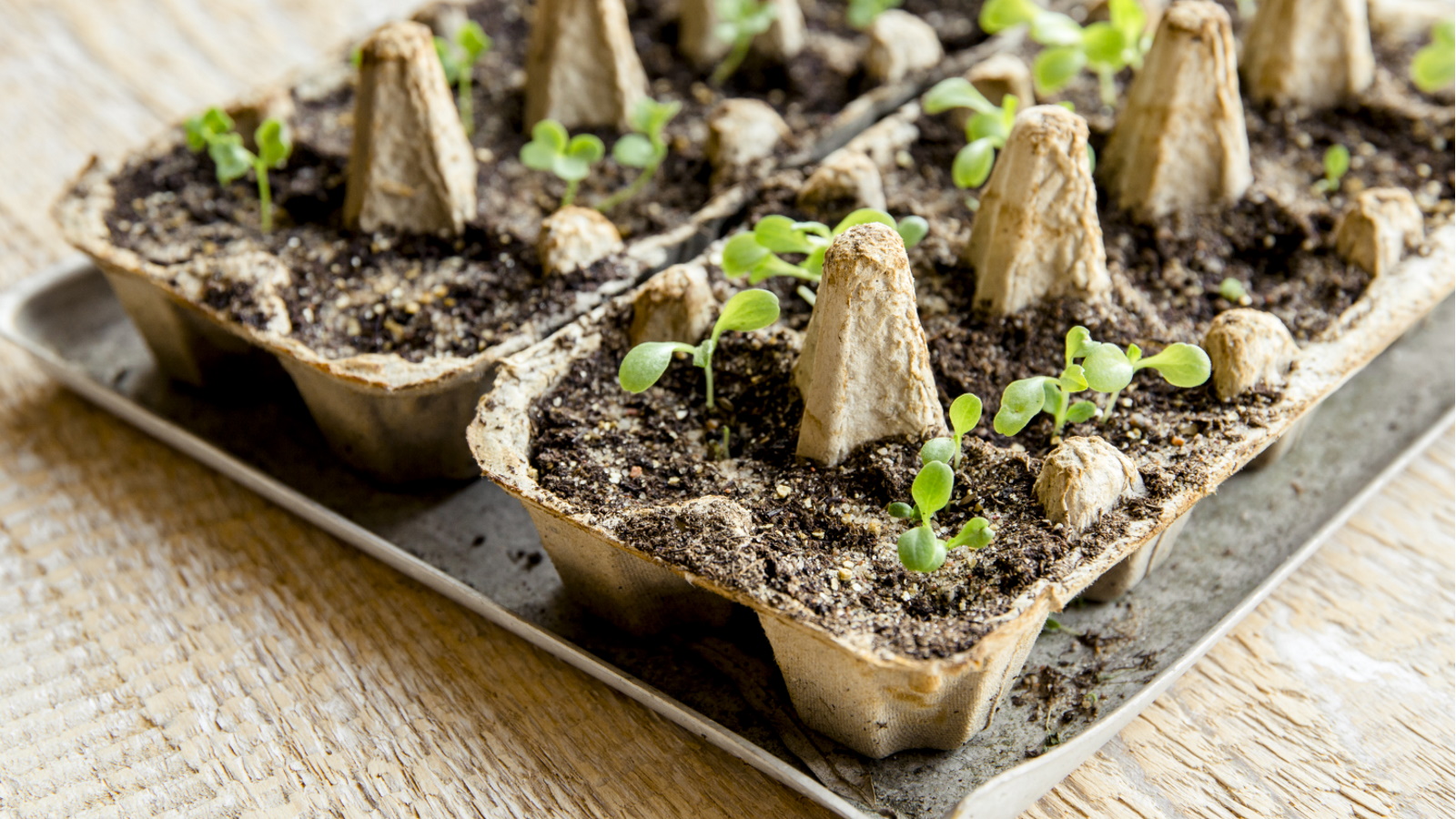

As the weather starts to warm up, you might be getting ready to tackle the spring jobs in your seed sowing schedule. Whether you choose to sow seeds indoors, in a greenhouse or outdoors, you'll need a container to germinate your seeds in.
Many gardeners choose to use trays, like these seed trays from Amazon. They're designed for successful germination, with different segments for seedlings to grow in and humidity domes to create warmth and encourage the seeds to sprout.
If you like a bit of DIY and want to incorporate more sustainability into your gardening tasks, you can easily make your own seed trays by repurposing everyday household items. We've put together a list of DIY seed tray ideas that you can make at home, with advice from experts to make them effective for germination.
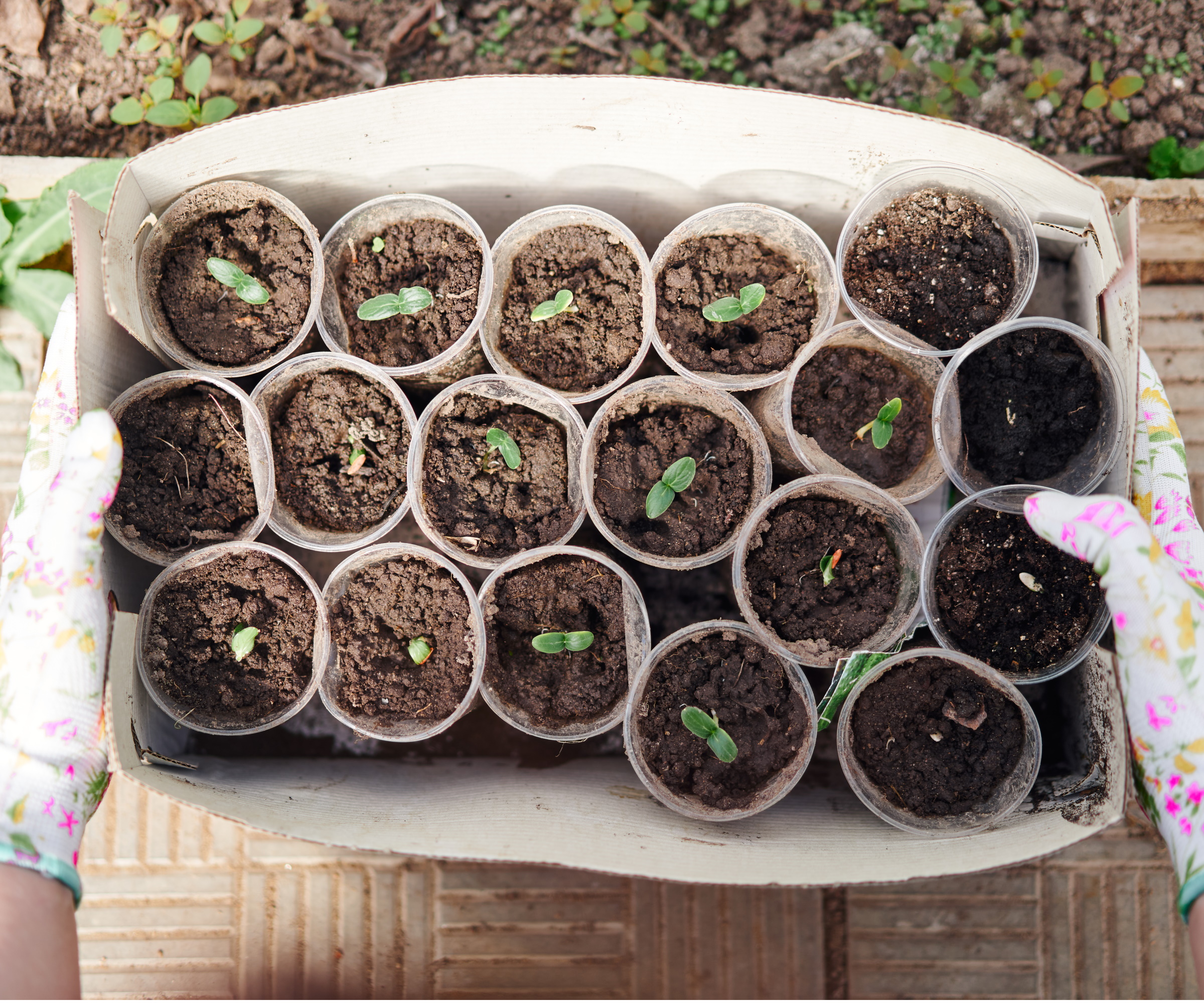
5 DIY seed tray ideas
Seed trays are designed to help with germination. There are many available on the market but why not consider making your own? Repurposing household items to make seed trays is fun to do - plus, it involves recycling materials that would otherwise be thrown away. Here is our expert list of DIY seed tray ideas for you to try.
1. Empty toilet rolls
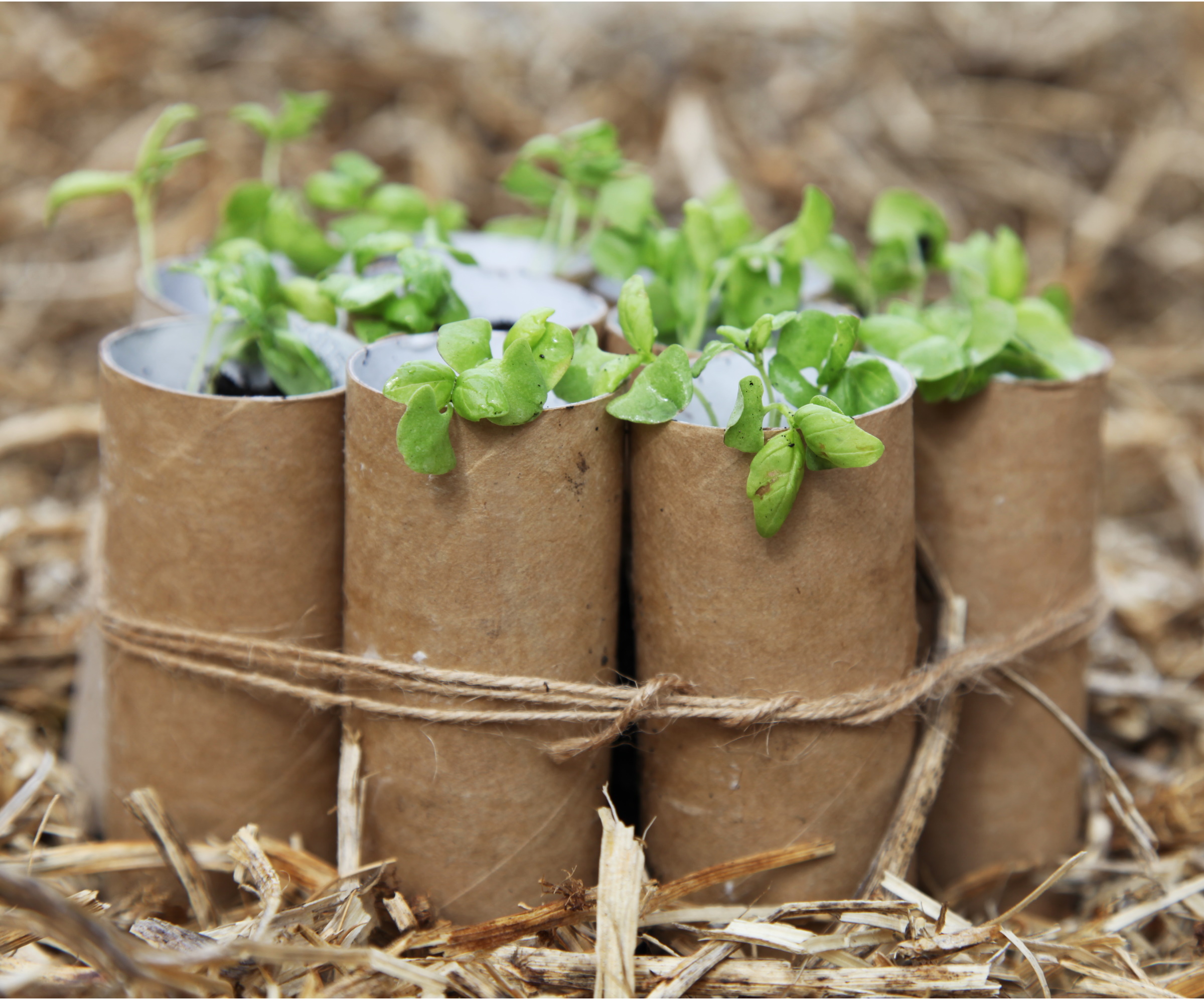
Something we are all quick to recycle or throw in the trash, but can easily repurpose are empty toilet rolls. These are ideal for growing seedlings in because they can act as the individual segments you find in a seed tray.
'For plants that develop a long taproot, or resent being handled excessively during transplanting, an empty paper towel or toilet paper roll makes an excellent option for sowing indoors,' says Meredith Bishop, sustainable flower grower and owner of Bloom and Bounty.
You can cut the bottom of the empty toilet rolls to make four flaps and fold them into each other to create a base. Proceed to fill each roll with your potting mix and then sow your seeds and water. Soon, you will see sprouts appear out the top of them.
'Additionally, the cardboard will break down in the soil and can be planted directly into a prepared bed once the seedling is hardened off,' says Meredith.
Empty toilet rolls are ideal for sowing sweet pea and bean seeds. You can also group multiple toilet rolls together with twine to create a tray. This will also encourage stability so they don't topple over when being watered.
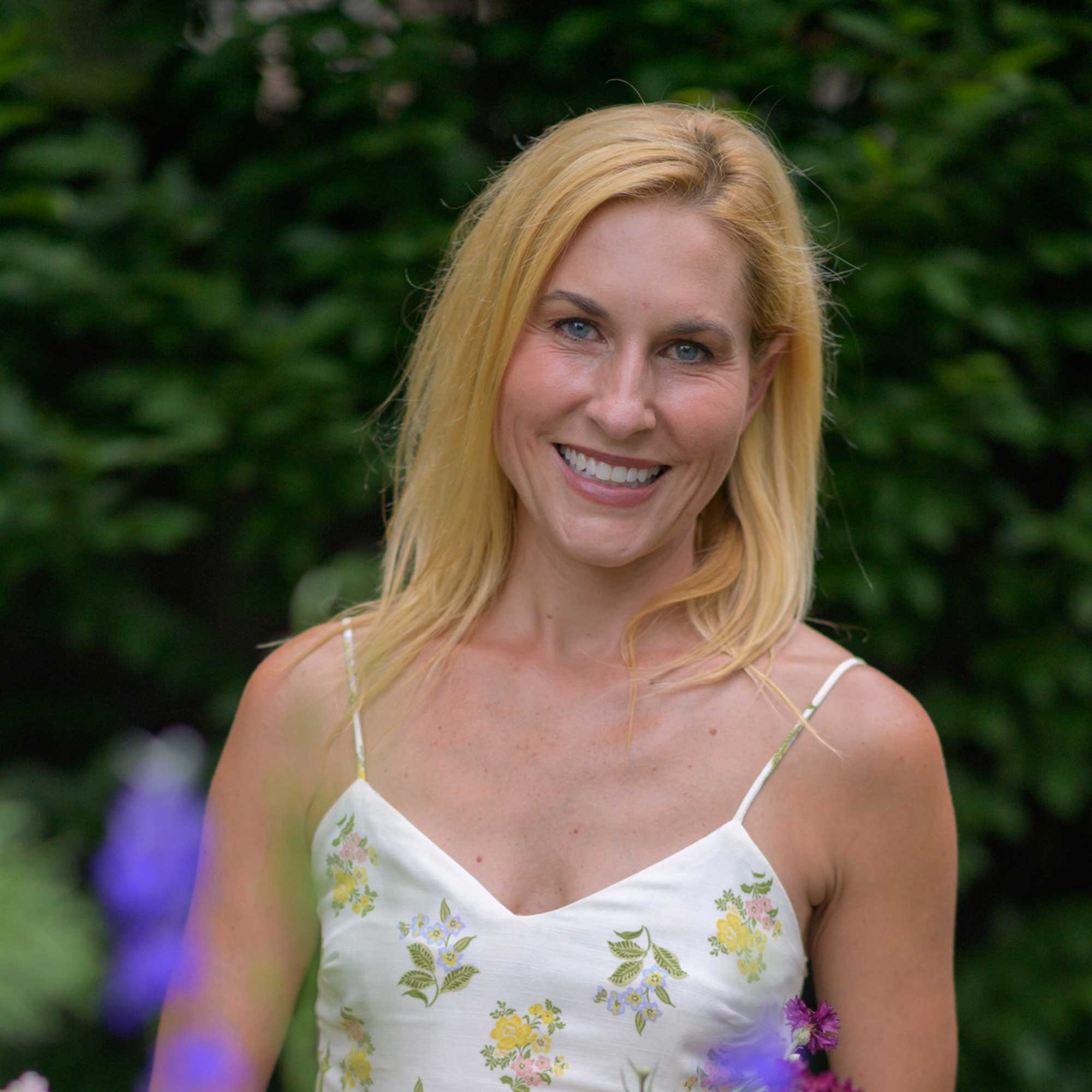
Meredith Bishop is a sustainable flower grower specializing in old-world blooms grown from seed in her gardens in urban Nashville, Tennessee. She also operates a retail design studio in Nashville, and enjoys teaching, speaking and writing about all aspects of flower gardening.
2. Egg cartons
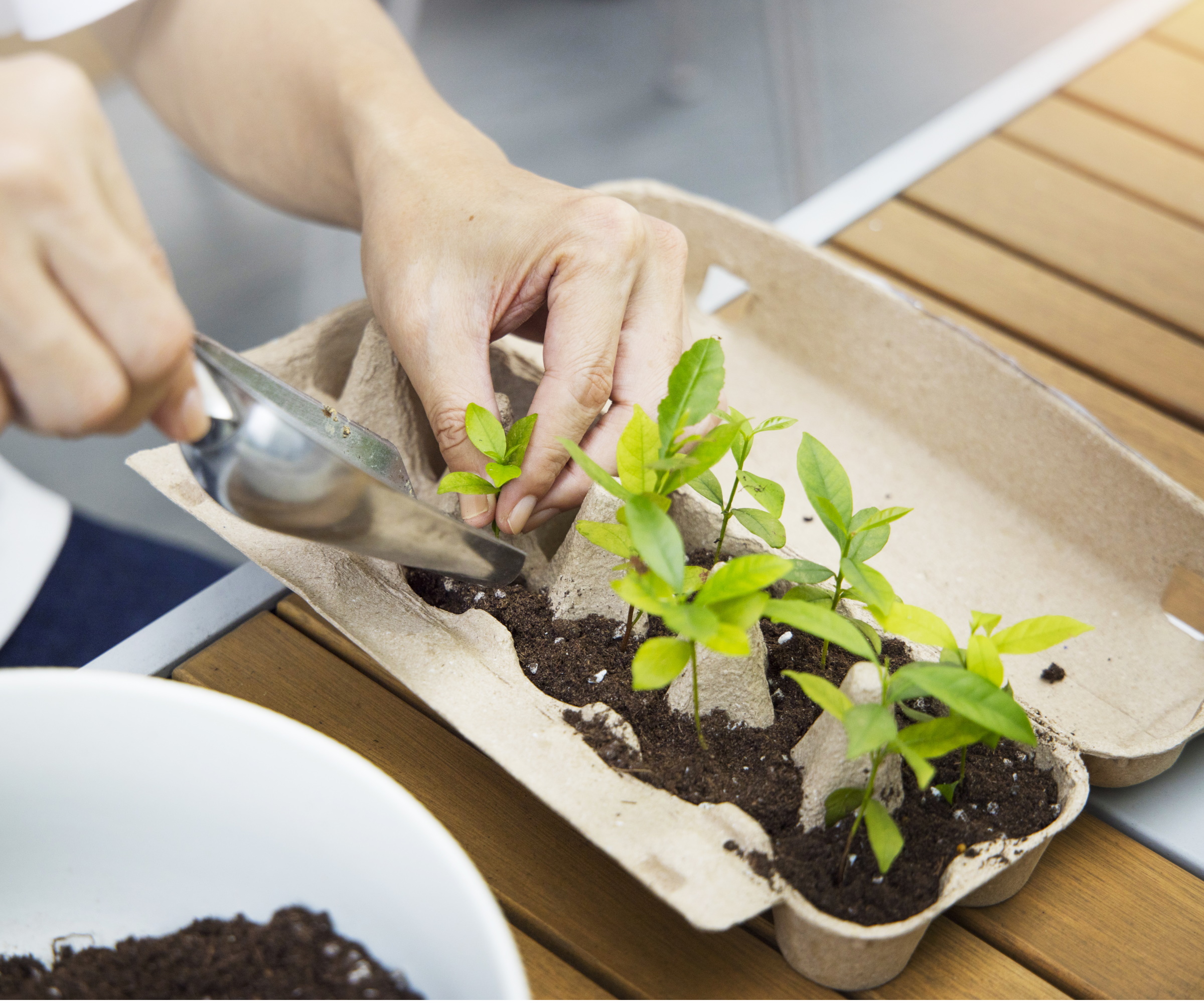
This seed tray alternative is perhaps the easiest to create. All you need is an empty egg carton.
'Take an egg carton and cut its lid off. Poke holes in the bottom of each egg cup with scissors or a knife,' says Vladan Nikolic, houseplant expert and founder of Mr Houseplant.
You can then fill each cup with well-draining potting soil, like this organic potting mix from Garden Goods Direct, sow your seeds and water them.
You may choose to cover the egg carton in a clear plastic bag or humidity dome to retain warmth. It's also a nice idea to label each cup, like with these wooden craft sticks from Amazon.
'Put the cartons in a place with plenty of bright, indirect light,' says Vladan. 'Once the seedlings have a few sets of true leaves, you can transplant them into bigger containers or directly in your garden,' he adds.
Some growers also choose to plant seeds inside egg shells within the carton. Once your seedlings have sprouted, they can be planted with the eggshell which will biodegrade.
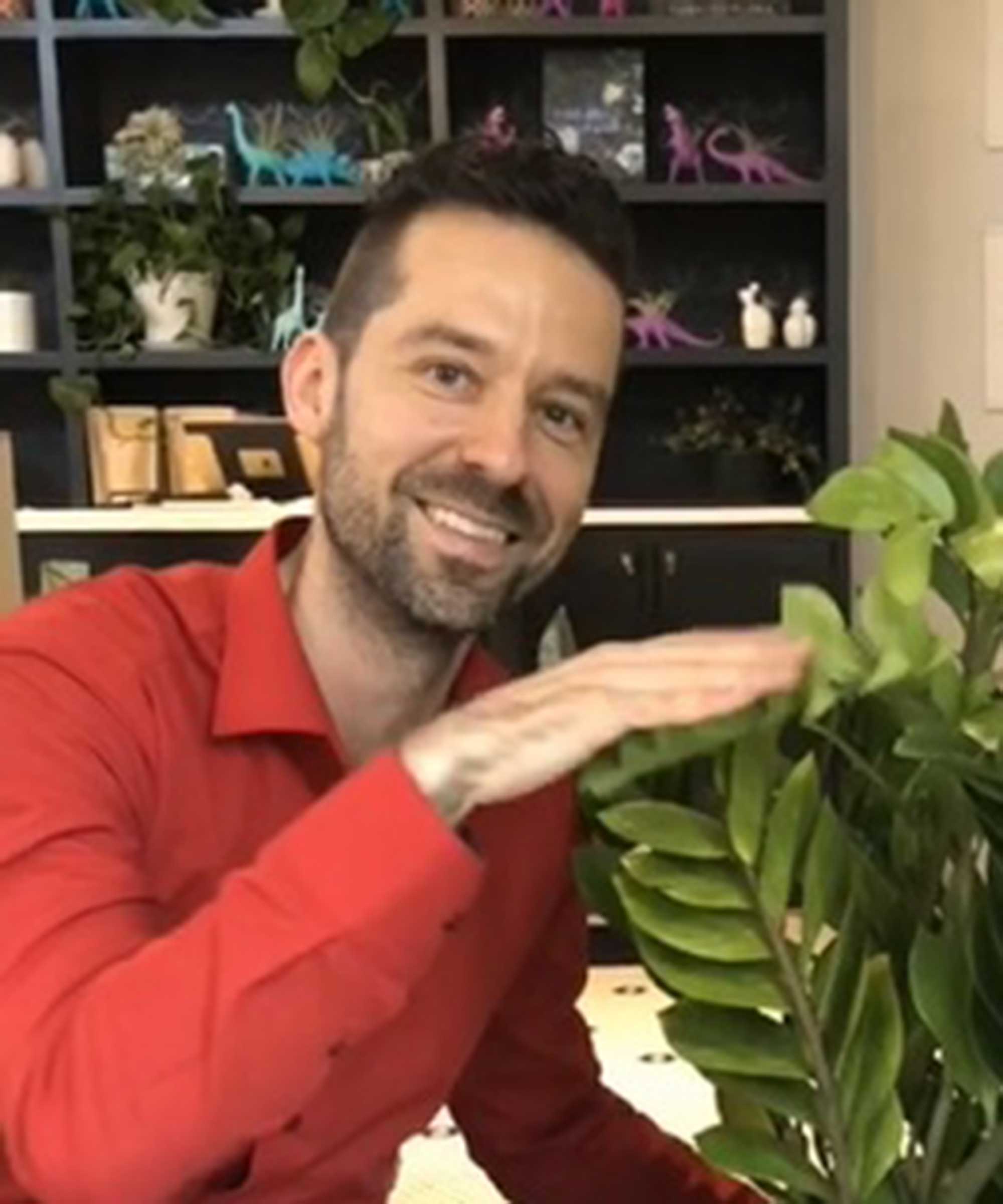
Vladan Nikolic is a houseplant expert with over 10 years of experience. He is the founder of the houseplant care blog Mr. Houseplant and is a social media influencer for houseplants with over 500,000 followers.
3. Yoghurt pots
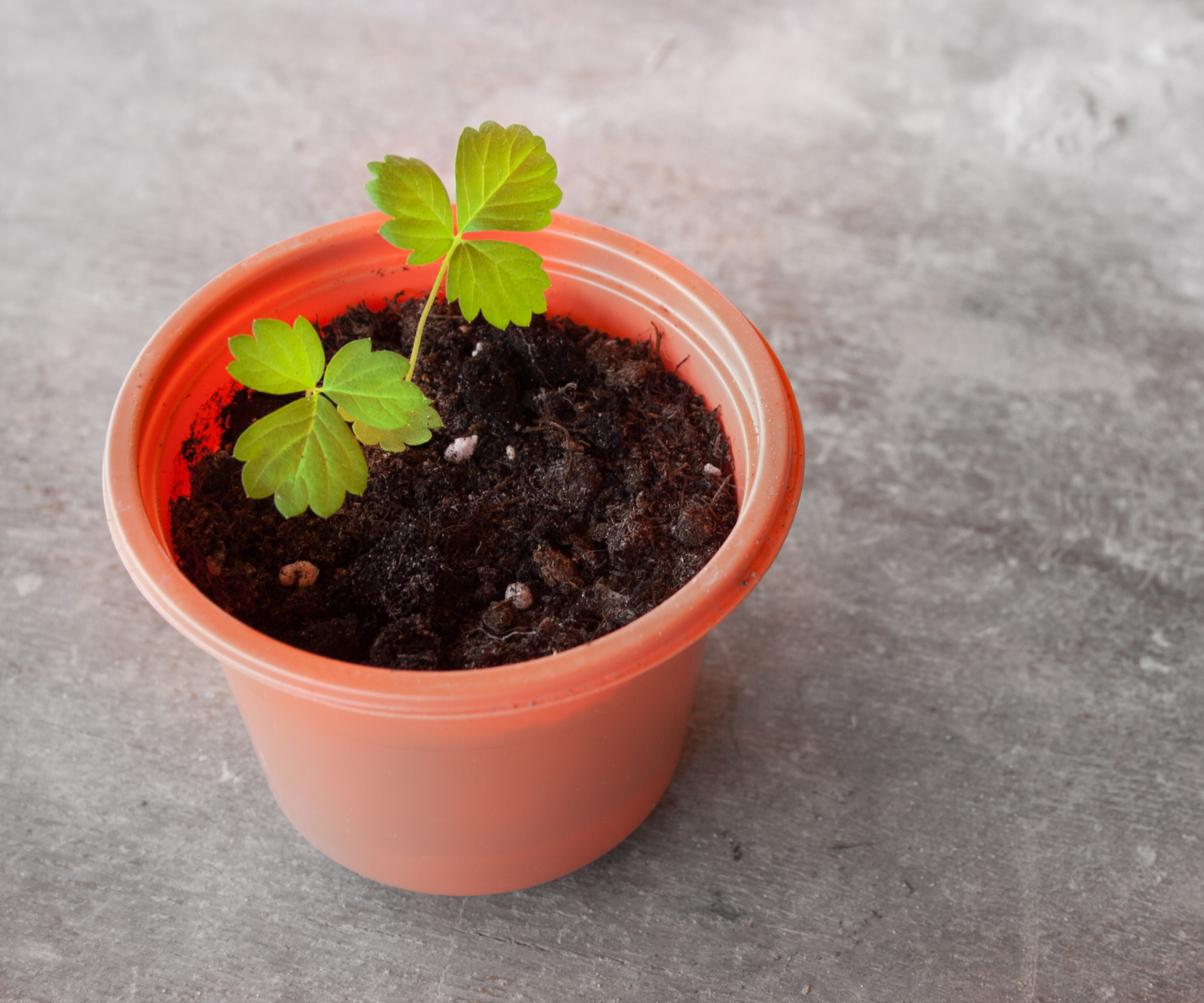
You can get DIY seed tray ideas from your everyday snacks. Plastic food pots are ideal for sowing seeds in because they provide a small container for seedlings to grow.
'Wash yoghurt pots, remove the labels and let them dry completely,' says Vladan. It's always important to use clean tools and equipment when working with plants to ensure you don't transfer any harmful bacteria.
One of the most common seed sowing mistakes you can make is overwatering. Seeds need plenty of moisture to germinate but oversaturation limits airflow and can lead to fungal problems that can kill seedlings.
'Use scissors or a knife to carefully poke a couple of drainage holes at the bottom,' Vladan suggests. This will help ensure the potting mix can drain well for the seeds to germinate.
4. Plastic milk cartons
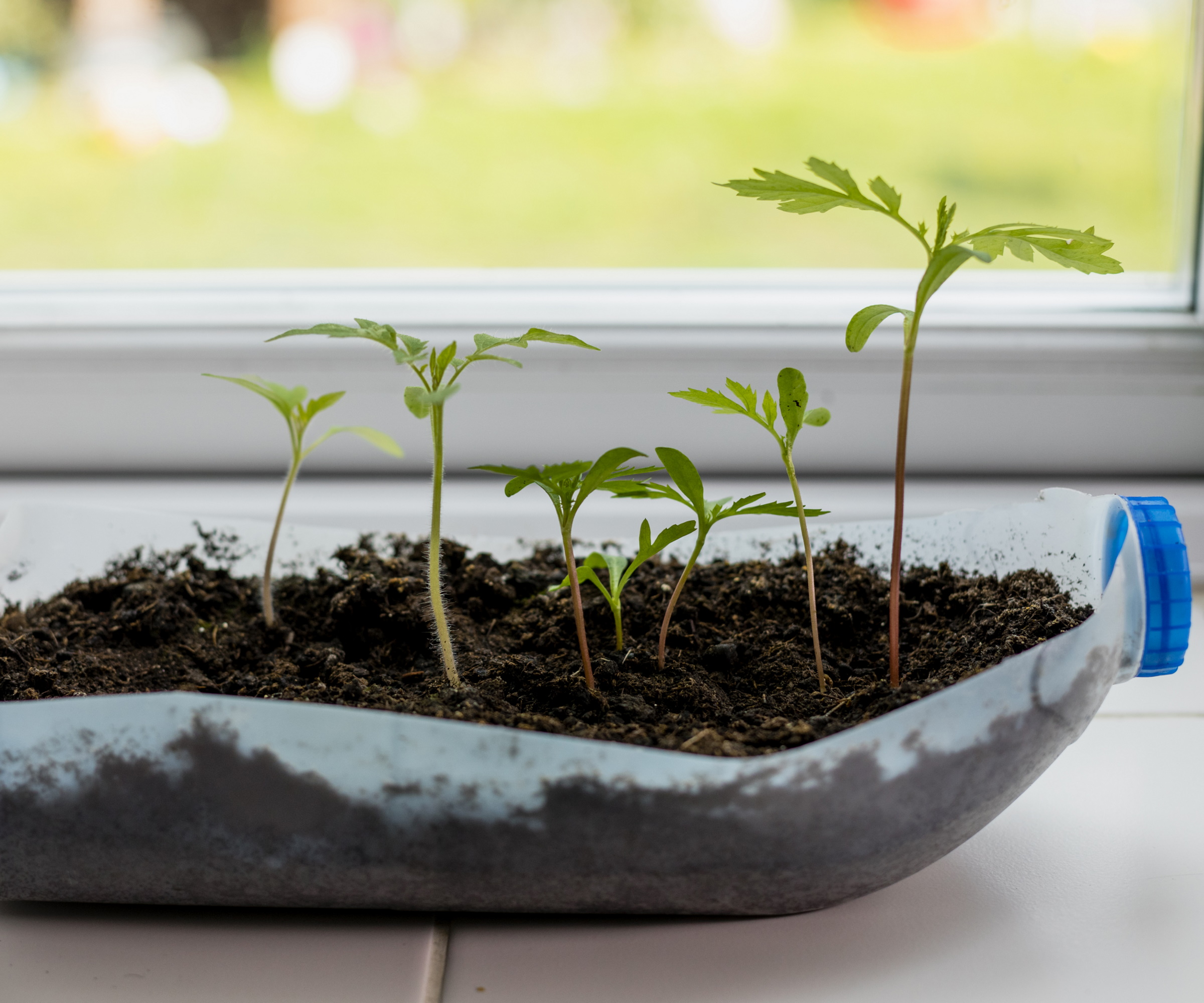
If you don't have the space for a greenhouse, or want an alternative to an indoor greenhouse, you can repurpose a plastic milk bottle to grow your seedlings.
'Simply cut the clean, empty jug horizontally at the level of the handle, stopping short of cutting through the handle,' says Meredith. 'The intact handle will serve as a hinge, which will serve to open the jug completely,' she adds.
Once again, it's important to create some drainage holes in the bottom of the jug before filling it up with your potting soil.
Meredith suggests placing your milk bottle seed tray outdoors. 'Place the jug where it will receive southern sun and exposure to rainfall. Check periodically for dryness, and water if necessary,' she says.
You can then plant up your seedlings once they have a handful of true leaves.
5. Food storage containers
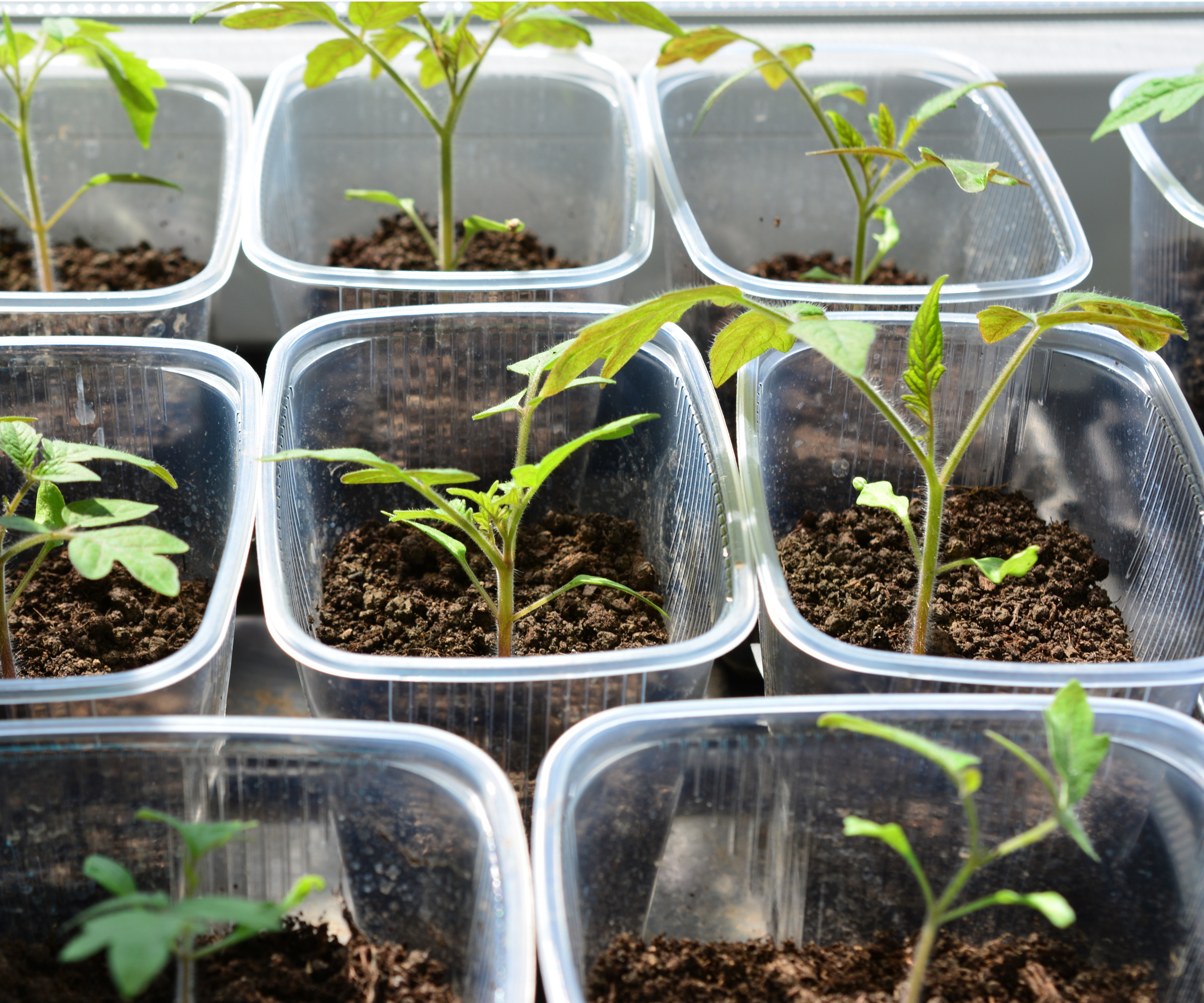
Clear reusable food containers are ideal for germinating seeds in, especially if they have lids. You can use it as you would use a planter and the transparency can help you to observe the growth.
Make sure to keep your containers in a warm spot with bright, indirect light, such as a windowsill. Like with milk bottle seed trays, this will create a greenhouse effect.
One thing to be aware of if using this method is that you may not be able to create drainage holes. Water moderately and allow the potting mix to mostly dry out before watering again to avoid oversaturating the soil.
FAQs
What is the best container to start seed indoors?
There are many household items you can use to create containers to start your seeds in. While most containers will work effectively, it is arguable that the best containers are those that will biodegrade, so that you can plant them directly after the seedlings have sprouted. This may include empty cardboard toilet rolls or egg shells in an empty egg carton.
It's easy to come up with DIY seed trays ideas by repurposing different household items. With a bit of creativity, you can turn your waste into effective stations for your seedlings to grow. It's a good way to make your garden tasks more environmentally-friendly, just like these DIY watering system ideas which also involve using recycled materials.
Sign up to the Homes & Gardens newsletter
Design expertise in your inbox – from inspiring decorating ideas and beautiful celebrity homes to practical gardening advice and shopping round-ups.

Tenielle is a Gardens News Writer at Homes & Gardens. She holds a qualification in MA Magazine Journalism and has over six years of journalistic experience. Before coming to Homes & Gardens, Tenielle was in the editorial department at the Royal Horticultural Society and worked on The Garden magazine. As our in-house houseplant expert, Tenielle writes on a range of solutions to houseplant problems, as well as other 'how to' guides, inspiring garden projects, and the latest gardening news. When she isn't writing, Tenielle can be found propagating her ever-growing collection of indoor plants, helping others overcome common houseplant pests and diseases, volunteering at a local gardening club, and attending gardening workshops, like a composting masterclass.
-
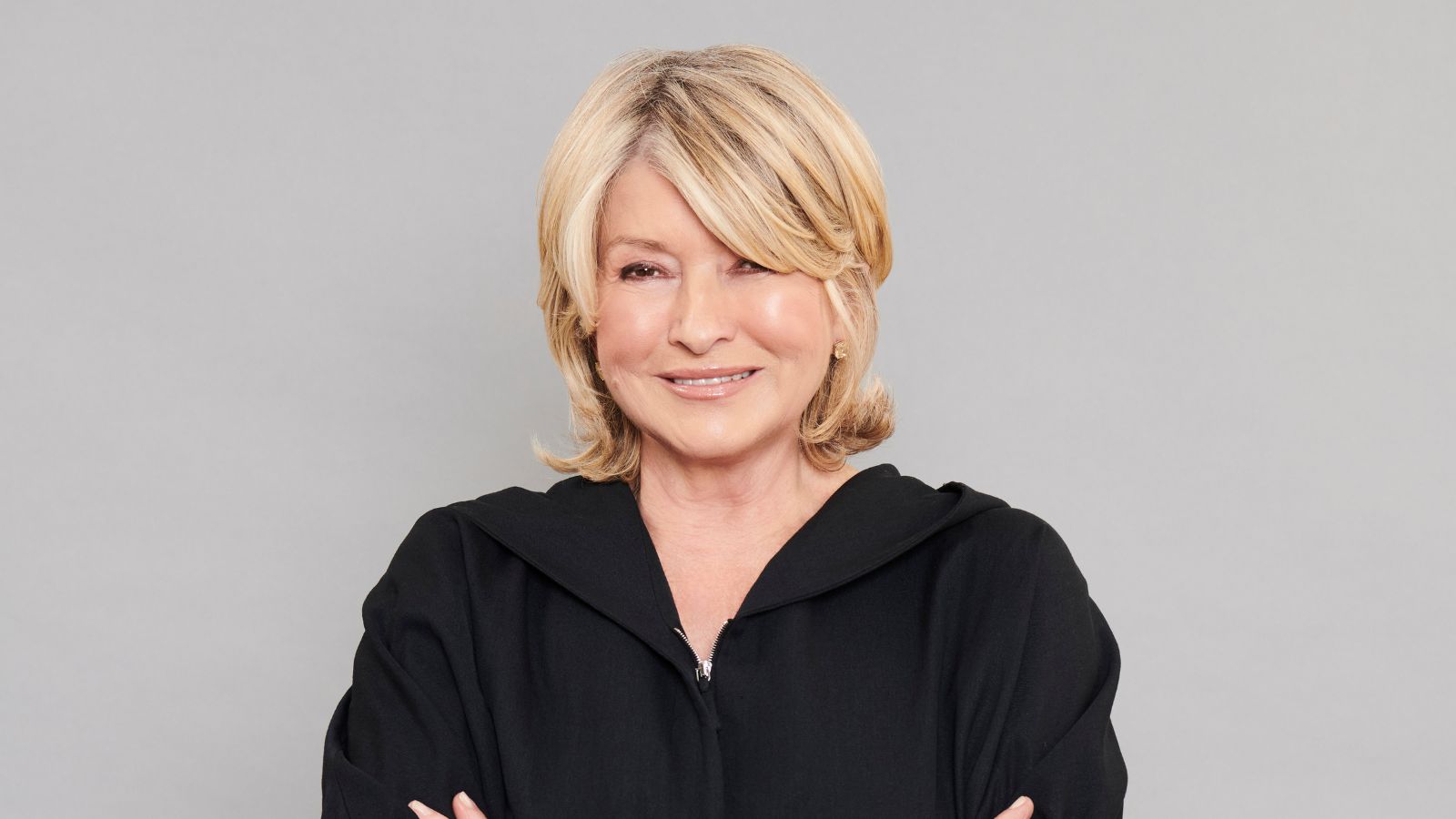 Martha Stewart's intelligent cabinets 'take every inch into consideration' – their 'visually light' style will solve your small kitchen storage problems
Martha Stewart's intelligent cabinets 'take every inch into consideration' – their 'visually light' style will solve your small kitchen storage problems'Every kitchen can be beautiful and functional, no matter what the size': 9 years since sharing her clever storage, Martha's cabinets are just as beautiful
By Megan Slack Published
-
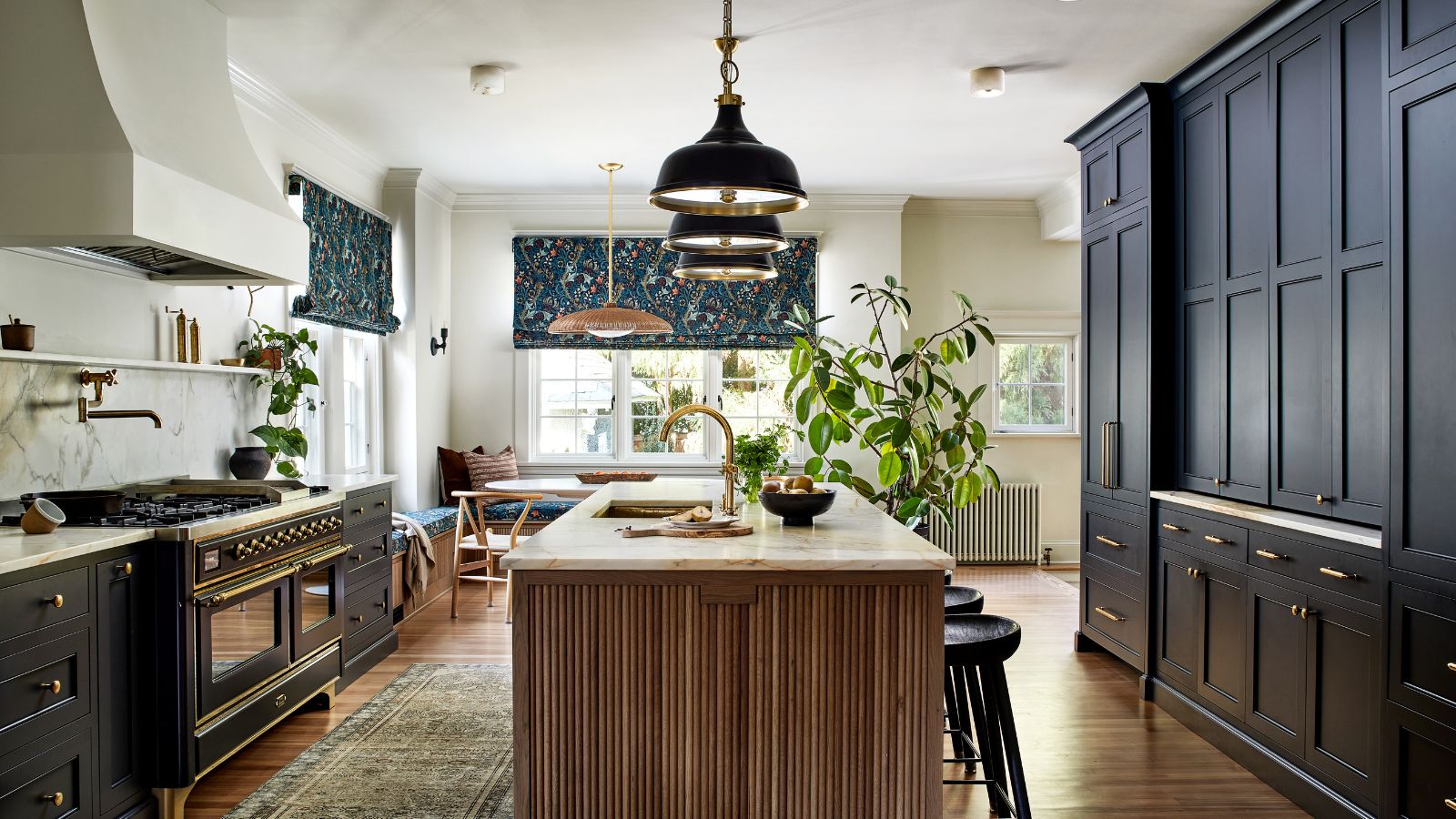 This once-dated kitchen is now a timeless space with the coziest details – and its the classic color palette that's made it a chic, welcoming space
This once-dated kitchen is now a timeless space with the coziest details – and its the classic color palette that's made it a chic, welcoming spaceWarming colors and natural materials combine to create this enduringly classic kitchen scheme
By Molly Malsom Published